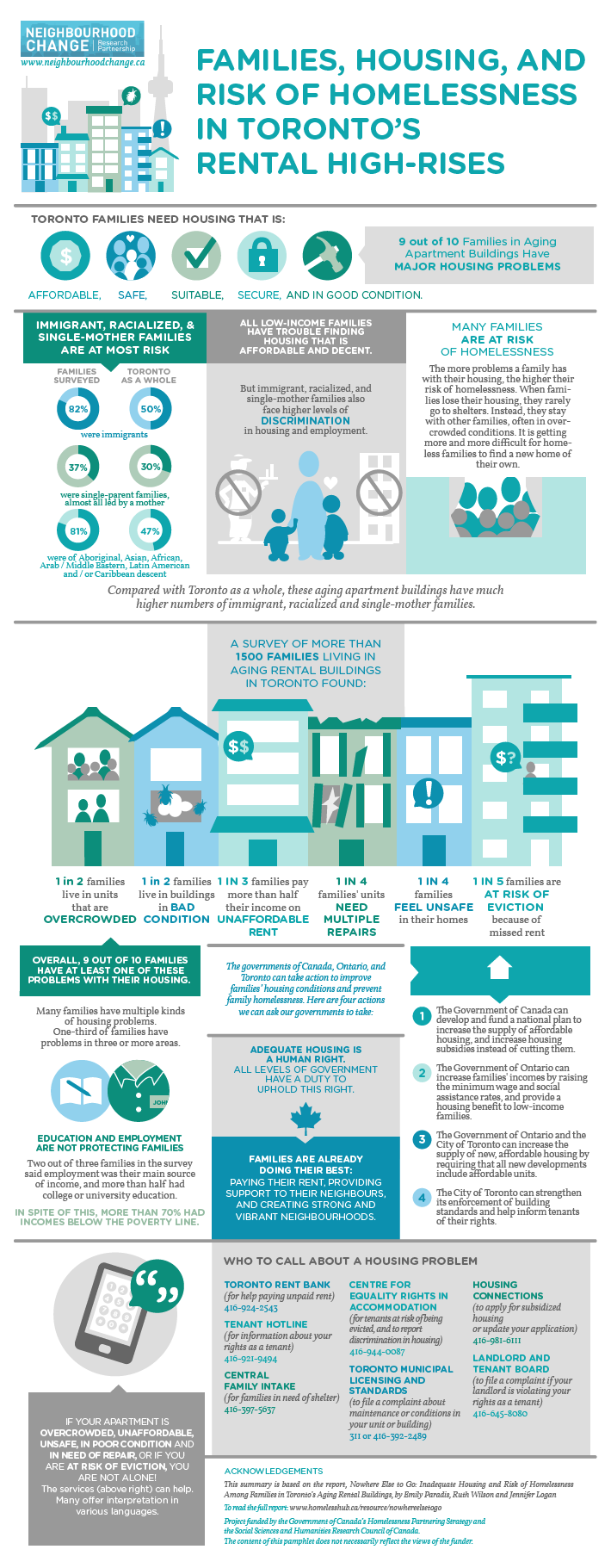Today, October 17, is the International Day for the Eradication of Poverty. The United Nations has focused this year’s theme on complete eradication of extreme poverty in poor countries of the global South, where—thanks to concerted global efforts led by the UN’s Millennium Development Goals—rates of extreme poverty have been cut in half since 1990.
The same cannot be said for Toronto, where rates of hunger, homelessness, and family poverty have ballooned in that same period, driven by economic and social trends of increasing inequality and polarization. Research by David Hulchanski’s Neighbourhood Change Research Partnership shows that our city is becoming so segregated by income and race that it could be seen as three cities: a booming “City #1,” well-resourced central zones of mostly white, upper-income households; the diminishing “City #2” of ethnically mixed and middle-income households; and a growing “City #3” of low-income neighbourhoods far from transit and services, where most residents are members of racialized communities.
My project, Family Homelessness in Toronto’s Inner Suburbs examined the housing conditions of families in the aging apartment buildings that are concentrated in City #3. What we found was striking: nine out of ten families have housing that fails to meet basic United Nations standards of adequacy. Their housing is unaffordable, overcrowded, unsafe, insecure, and in need of repair. Family homelessness is rampant in these neighbourhoods, but it is mostly hidden. Many families lose their housing due to violence, eviction, and unsafe conditions. When they do, they usually double-up with other families in their neighbourhoods instead of going to shelters.
In consultation with an advisory board of front-line agencies and tenant leaders in these neighbourhoods, we have produced a new research summary, released today. The flyer, which will be translated into multiple languages, aims to put this information in the hands and on the screens of tenants and front-line workers.
Toronto’s housing crisis is urgent, and it won’t be solved by research alone. Citizens need to stand up and demand that all levels of government uphold the right to adequate housing. We hope this flyer can provide evidence and information to strengthen tenants’ organizing.
At tonight’s Mayoral Debate on Housing and Homelessness, candidates will tell us where they stand. In our last election, the slogan Respect for Taxpayers won the day – and we all saw how that worked out. What about Respect for Tenants? Which candidate’s policies will improve the housing situation for low-income families in Toronto?


